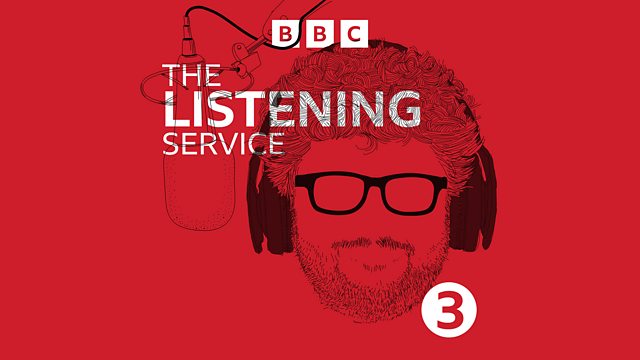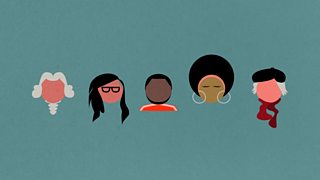All American Ives?
What links baseball, life insurance and American art music? Charles Ives does! Tom Service explores the experimental composer's unique life and work.
What links baseball, life insurance and American art music? Charles Ives does! Unknown during his lifetime in Connecticut and New York the experimental composer and church organist created his unique style entirely on his own terms away from the contemporary music world, whilst running his insurance company Ives & Myrick. One day in his early fifties in 1927 he came downstairs with tears in his eyes and told his wife he couldn't compose anymore - nothing sounded right. He spent the rest of his life revising and promoting his pieces. He was eventually admired and championed by Bernard Herrmann, Leonard Bernstein and Arnold Schoenberg.
His music incorporates everything from hymn tunes to brass band marches but foreshadowed many ideas and innovations that were later used widely in 20th-century classical music. As the conductor Leonard Slatkin puts it, 'knowing one Ives piece may not prepare you for another!'
Tom Service looks beyond the quirks of Ives's unusual life as a composer and explores how his incredible music actually works.
Last on
More episodes
Music Played
-
![]()
Charles Ives
Variations on 'America', orch. William Schuman [orig. for organ]
Conductor: Leonard Slatkin. Performer: Saint Louis Symphony Orchestra.- RCA.
- 09026-61282 2.
-
![]()
Charles Ives
2 Contemplations K.V.23 for chamber orchestra
Orchestra: New York Philharmonic. Conductor: Leonard Bernstein.- Deutsche Grammophon.
- 429 220-2.
-
![]()
Charles Ives
Three places in New England (Orchestral set no.1) K.V.30
Conductor: Michael Tilson Thomas. Performer: San Francisco Symphony.- RCA.
- 09026-63703.
-
![]()
Charles Ives
Holidays - symphony in four parts
Conductor: Leonard Bernstein. Performer: New York Philharmonic.- SONY.
- G010001400715F.
-
![]()
Charles Ives
He is there! (They are there!) K.Z.104 for voice and piano or unis. voices and orchestra
Performer: Charles Ives.- NEW WORLD RECORDS.
- NW80642.
-
![]()
Charles Ives
2 Contemplations K.V.23 for chamber orchestra
Conductor: Michael Tilson Thomas. Performer: Chicago Symphony Orchestra.- CBS.
- MK42381.
-
![]()
Charles Ives
Orchestral set no. 2
Conductor: Michael Tilson Thomas. Performer: Royal Concertgebouw Orchestra.- SONY CLASSICAL.
- G010004407199G.
-
![]()
Charles Ives
Yale-Princeton football game KV.10 for small orchestra
Conductor: James Sinclair. Performer: Malmö SymfoniOrkester.- NAXOS.
- 8559370.
-
![]()
Charles Ives
Old home days K.Z.97 for voice and accompaniment
Performer: United States Marine Band.- NAXOS.
- 8570559.
-
![]()
Charles Ives
Sonata no. 2 K.X.19 (Concord) for piano
Performer: Marc-André Hamelin.- HYPERION.
- CDA67469.
-
![]()
Charles Ives
Holidays - symphony in four parts
Conductor: Leonard Bernstein. Performer: New York Philharmonic.- SONY.
- G010001400715F.
-
![]()
Charles Ives
He is there! (They are there!) K.Z.104 for voice and piano or unis. voices and orchestra
Performer: Charles Ives.- NEW WORLD RECORDS.
- NW80642.
Broadcasts
- Sun 25 Jun 2023 17:00±«Óătv Radio 3
- Fri 30 Jun 2023 16:30±«Óătv Radio 3
Why do we call it 'classical' music?
Tom Service poses a very simple question (with a not-so-simple answer).
Six of the world's most extreme voices
From babies to Mongolian throat singers: whose voice is the most extreme of all?
How did the number 12 revolutionise music?
Why are we all addicted to bass?
Watch the animations
Join Tom Service on a musical journey through beginnings, repetition and bass lines.
When does noise become music?
We like to think we can separate “noise” from “music”, but is it that simple?
Podcast
-
![]()
The Listening Service
An odyssey through the musical universe, presented by Tom Service





